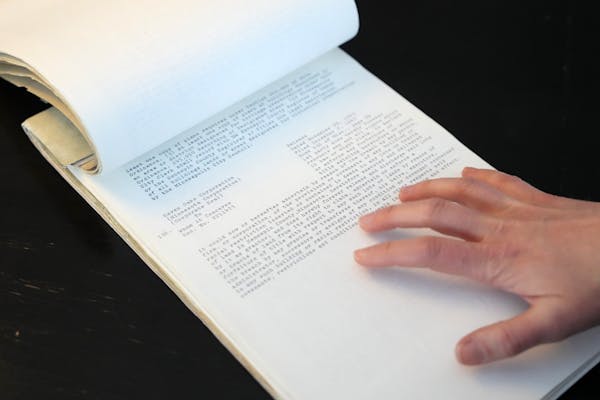There was a time when Zach Lindstrom's family would have been barred from living in many houses in Mounds View, the St. Paul suburb of 12,000 where he is now the mayor.
Developers who eyed Mounds View for suburbanization amid a mid-20th century housing boom added language to titles of more than 500 properties in the city that excluded — as they put it in many records — "persons other than of the Caucasian race."
Such restrictive covenants have been legally unenforceable for more than 75 years. But Lindstrom, who has two children with his wife, who is of Korean and Filipino descent, wants them discharged — a symbolic move to renounce them.
He plans to announce Saturday that the city is drafting an ordinance to require property owners to discharge restrictive covenants before selling a home in the city. If it passes, Mounds View would be the first city in Minnesota with such a requirement, Lindstrom said.
"It isn't something that I want to have to explain to my kids," Lindstrom said of the racist language buried in city property records.
Restrictive covenants, which commonly excluded people from buying or occupying property based on their race, ethnicity or religion, are not just found in Mounds View: Mapping Prejudice, a research project, has found tens of thousands of them in Minnesota, including in Minneapolis, St. Paul and many of its suburbs. Outside Minnesota, restrictive covenants have been found across the country.
"People who put in racial covenants are often trying to, quote, unquote, 'protect themselves' from something that they're worried about encroaching on their community, and usually that was something of an imaginary threat, but that doesn't make the impact of them not real," said Michael Corey, associate director of Mapping Prejudice. That includes in Mounds View, where Mapping Prejudice records show some restrictive covenants were added even after they were declared unenforceable.
Legal or not, the legacy of restrictive covenants continues, Corey told members of the Ramsey County Board during a workshop this week. They contributed to racial homeownership gaps that remain today, and houses with restrictive covenants on them have higher values today than those that didn't.
A 2019 Minnesota state law allowed homeowners to add language to their property titles discharging restrictive covenants. A coalition called Just Deeds has helps homeowners with the process, working with many local governments in Minnesota.
"Discharging a covenant is a great symbolic action," Corey said. "At the same time, discharge doesn't undo the harms caused by racial covenants and other tools of segregation." Corey said he hopes the discussion around restrictive covenants encompasses how to remedy the harms they have caused.
Lindstrom said he wants Mounds View to take it a step further than raising awareness.
If the ordinance passes, City Administrator Nyle Zikmund said the city would begin by sending letters to the owners of affected properties that include the form to discharge a covenant. The city would make notaries available at City Hall to make the process easy and cover postage.
Zikmund said he thinks most people with restrictive covenants on their properties don't know about them. He said he hopes most would comply voluntarily. If not, Zikmund said, they would be required to before a sale. The ordinance could take effect in the fall.
Lindstrom said he sees the discharge of covenants as essential to making Mounds View a welcoming community. Census data show a third of the city's residents identify as Black, Indigenous or people of color.
"We can't endeavor to be this engaging, welcoming community when we still have this embedded in our roots, even though it's not enforceable," he said.
Saturday's event at the Mounds View Community Center from 1 p.m. to 3 p.m. will celebrate Juneteenth. It is the kickoff event for the city's Community Engagement Committee.
Hennepin and Ramsey County residents can find out if there are restrictive covenants on their property at mappingprejudice.umn.edu.






